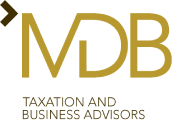How to use a trust to manage your business or investments
A trust is a way of holding and managing property for the benefit of others. A trust is not a separate legal entity, but a relationship between three parties:
- The trustee, who is the person or company that controls and manages the trust property.
- The beneficiaries, who are the people or entities that benefit from the trust property.
- The trust property, which is the assets or income that are held by the trust.
There are different types of trusts, such as discretionary trusts and unit trusts, and each one has its own rules and features. Trusts can be used for various purposes, such as running a business, investing in assets, or protecting your wealth.


Why choose a trust?
Some benefits of using a trust are:
- You can reduce your liability, especially if you use a corporate trustee instead of an individual trustee. A corporate trustee is a company that acts as the trustee of the trust, and it has limited liability for the debts and losses of the trust. An individual trustee is a person who acts as the trustee of the trust, and he or she has unlimited liability for the debts and losses of the trust.
- You can protect your assets from creditors, lawsuits, or family disputes. The trust property is legally owned by the trustee, not by you or the beneficiaries, so it is generally safe from claims by third parties.
- You can have flexibility and control over how the trust property is distributed. In a discretionary trust, you can decide who gets what and when from the trust property. In a unit trust, you can determine how much each unit holder gets from the trust property.
Book an appointment with us today!
- You have more paperwork and reporting obligations than other structures. You need to prepare a trust deed, register the trust with the ATO, keep records of the trust activities, and lodge annual tax returns for the trust.
- You may pay more tax than other structures in some cases. The trustee may have to pay tax on any income that is not distributed to the beneficiaries, or on any income that is distributed to non-resident or minor beneficiaries. The beneficiaries may also have to pay tax on their share of the trust income.
- You may have difficulty changing or exiting the structure. Depending on the terms of the trust deed, you may not be able to amend or terminate the trust easily. You may also have to pay stamp duty or capital gains tax when transferring assets in or out of the trust.


MDB Taxation and Business Advisors can help you
Setting up and managing a trust is not a simple task. It requires careful consideration of many factors, such as:
- How to choose the best type of trust for your purpose
- How to select the right trustee and beneficiaries
- How to draft a clear and effective trust deed
- How to comply with all the legal and tax requirements for trusts
- How to maximise your tax benefits and concessions
- Navigating S100A which have received a lot of media lately
At MDB Taxation and Business Advisors, we have the expertise and experience to help you with all aspects of trusts. We will advise you on whether a trust is suitable for your situation, and what kind of trust you should use. We will also help you set up and manage your trust, so you can enjoy its advantages without worrying about its complexities.
Whether you want to use a discretionary trust, a unit trust, or another type of trust, we can help you make the right choice. Contact us today to find out how we can help you achieve your business or investment goals.
